How Many Water Bottles Should I Drink a Day? Staying hydrated plays a vital role in maintaining your overall health. For an average adult, consuming about 4-5 water bottles of 16.9 ounces (500 ml) daily is a common guideline. However, your hydration needs can vary significantly. Factors like your weight, activity level, and the climate you live in influence how much water your body requires. For instance, men are often recommended to drink around 3.7 liters (125 ounces) daily, while women typically need 2.7 liters (91 ounces). Meeting these needs ensures your body functions optimally, supporting everything from digestion to cognitive performance.
Table of Contents
- How Many Water Bottles Should You Drink Daily?
- Factors That Influence Your Water Bottle Intake
- Benefits of Drinking Enough Water Bottles
- How to Calculate Your Water Bottle Needs
- Practical Tips for Drinking the Right Number of Water Bottles
- Common Myths About Water Bottles and Hydration
- Signs You May Not Be Drinking Enough Water Bottles
- Can You Drink Too Many Water Bottles?
- When to Consult a Professional About Your Water Bottle Intake
- FAQ
How Many Water Bottles Should You Drink Daily?
General Guidelines for Water Intake
Understanding how many water bottles you should drink daily starts with general recommendations. Health experts often suggest that men consume about 3.7 liters (125 ounces) of water per day, while women need approximately 2.7 liters (91 ounces). If you use 16.9-ounce water bottles, this translates to roughly 7-8 bottles for men and 5-6 bottles for women. These guidelines aim to ensure your body maintains proper hydration, which supports essential functions like temperature regulation, nutrient transport, and waste elimination.
The widely known "8x8 rule" also provides a simple approach. It recommends drinking eight 8-ounce glasses of water daily, equaling about 2 liters or half a gallon. While this rule is easy to remember, it may not suit everyone. Your hydration needs depend on more than just a universal standard. Factors like your activity level, diet, and environment can significantly influence how much water you require.

Image Source: Greylock bottles
Scientific Insight: According to a 2010 study published in EFSA J., water intake recommendations are based on population studies and regional data. These findings highlight the importance of tailoring hydration advice to individual needs rather than relying solely on general guidelines.
Why Individual Needs Vary
Your water intake requirements are unique. Several factors determine how many water bottles you should drink daily. For instance, your weight plays a significant role. Larger bodies require more water to maintain fluid balance. A common guideline suggests drinking half your body weight in ounces of water each day. For example, if you weigh 150 pounds, you might aim for about 75 ounces, or roughly 4-5 water bottles.
Physical activity also impacts your hydration needs. When you exercise, your body loses water through sweat. Replenishing these fluids is crucial to prevent dehydration and maintain performance. Similarly, living in a hot or humid climate increases your water loss, requiring you to drink more to stay hydrated.
Health conditions and medications can further influence your water needs. Certain illnesses, like kidney disease or diabetes, may require adjustments to your fluid intake. Medications such as diuretics can also increase water loss, making it essential to monitor your hydration closely.
Scientific Insight: A 2020 study emphasized the connection between water intake and chronic diseases. Proper hydration not only supports overall health but also reduces the risk of long-term conditions like kidney stones and metabolic disorders.
Lastly, your diet affects how much water you need. Foods with high water content, such as fruits and vegetables, contribute to your daily hydration. Conversely, consuming salty or sugary foods may increase your thirst, signaling a need for more water.
By understanding these variables, you can better estimate how many water bottles your body requires each day. Adjusting your intake based on your lifestyle and environment ensures you stay hydrated and healthy.
Factors That Influence Your Water Bottle Intake
Weight and Body Size
Your body size directly impacts how much water you need to stay hydrated. Larger individuals require more fluids to maintain proper hydration levels. A common guideline suggests drinking half your body weight in ounces of water daily. For example, if you weigh 200 pounds, you should aim for about 100 ounces of water, which equals roughly six 16.9-ounce water bottles. This approach ensures your body has enough water to support essential functions like circulation and temperature regulation.
Scientific Research Findings: A 2023 study published in BMC Medicine highlights the importance of hydration for preserving both physical and mental functions. Dehydration can impair cognitive abilities and lead to adverse physiological effects, making adequate water intake crucial for individuals of all sizes.
Physical Activity Levels
Your activity level significantly influences how many water bottles you should drink each day. Physical exertion causes your body to lose water through sweat, which increases your hydration needs. Whether you engage in light exercise or intense workouts, replenishing lost fluids is essential to maintain performance and endurance. For every hour of exercise, consider drinking an additional 16-20 ounces of water, equivalent to one extra water bottle.
Scientific Research Findings: According to a 2010 study in PMC, dehydration negatively affects physical performance and endurance. Rehydration helps reverse these deficits, ensuring your body functions optimally during and after physical activity.
If you participate in high-intensity activities or exercise in hot environments, your water needs may increase further. Monitoring your sweat loss and adjusting your intake accordingly can help you avoid dehydration and its associated risks.
Climate and Weather Conditions
The climate you live in plays a significant role in determining your daily water intake. Hot or humid weather increases your body's water loss through sweat, requiring you to drink more to stay hydrated. In contrast, cold climates may reduce your thirst sensation, but your body still needs adequate hydration to function properly.
Living at higher altitudes also affects your hydration needs. The air at higher elevations is drier, which can lead to increased water loss through respiration. If you reside in or travel to such areas, you should increase your water intake to compensate for these changes.
Practical Tip: Carry a reusable water bottle with you when spending time outdoors in extreme weather conditions. This habit ensures you have easy access to water and helps you maintain consistent hydration throughout the day.
By considering these factors—your weight, activity level, and climate—you can better estimate how many water bottles your body requires daily. Tailoring your water intake to your unique circumstances ensures you stay hydrated and healthy.
Health Conditions and Medications
Your health conditions and medications can significantly influence how many water bottles you should drink daily. Certain medical conditions, such as kidney disease or diabetes, may require you to adjust your water intake. For example, individuals with kidney stones often need to increase their hydration to prevent stone formation. On the other hand, those with heart-related conditions might need to limit fluid intake to avoid overloading the cardiovascular system.
Medications also play a role in determining your hydration needs. Diuretics, commonly prescribed for high blood pressure, increase urine production and lead to greater water loss. If you take these medications, you may need to drink more water to compensate. Similarly, some medications cause dry mouth as a side effect, signaling a need for additional hydration.
Scientific Research Findings: A 2023 study published in BMC Medicine highlights the importance of hydration in maintaining both physical and mental functions. Proper water intake helps mitigate the adverse effects of dehydration, which can be exacerbated by certain health conditions or medications.
Monitoring your hydration levels becomes even more critical when dealing with health conditions or taking medications. Pay attention to signs like dark urine, fatigue, or dizziness, as these may indicate dehydration. Consulting your healthcare provider ensures you meet your unique hydration needs safely and effectively.
Diet and Food Choices
Your diet directly impacts how much water you need to drink each day. Foods with high water content, such as cucumbers, watermelon, and oranges, contribute to your daily hydration. Including these in your meals reduces the number of water bottles you need to consume. For instance, a single serving of watermelon can provide up to 90% water, helping you stay hydrated without additional effort.
Conversely, consuming salty or sugary foods increases your body's demand for water. Salt-rich diets cause your body to retain sodium, which can lead to dehydration if not balanced with adequate water intake. Similarly, sugary foods and beverages can create a diuretic effect, prompting your body to lose more fluids.
Practical Tip: Incorporate hydrating foods into your meals and snacks. Soups, smoothies, and salads with water-rich ingredients are excellent choices for boosting hydration while enjoying a balanced diet.
Alcohol and caffeine also affect your hydration levels. While moderate consumption of coffee or tea may not dehydrate you, excessive intake can lead to fluid loss. Alcohol, in particular, acts as a diuretic, increasing the need for water to counteract its dehydrating effects.
By understanding how your diet influences hydration, you can make informed choices to maintain balance. Adjusting your water intake based on your food and beverage consumption ensures your body stays properly hydrated throughout the day.
Benefits of Drinking Enough Water Bottles
Physical Health Benefits
Drinking enough water bottles daily supports your physical health in numerous ways. Proper hydration helps regulate your body temperature, ensuring that you stay comfortable in both hot and cold environments. It also aids in digestion by breaking down food and transporting nutrients to your cells. Without sufficient water, your body struggles to eliminate waste, which can lead to constipation and other digestive issues.
Water plays a critical role in maintaining joint health. It lubricates and cushions your joints, reducing the risk of discomfort or injury during physical activities. Staying hydrated also supports cardiovascular health. When you drink enough water, your blood maintains its proper viscosity, allowing your heart to pump efficiently. This reduces the strain on your cardiovascular system and helps prevent conditions like high blood pressure.
Scientific Research Findings: A review in PMC highlights that deviations from an ideal hydrated state can impair physical functions. Proper hydration ensures your body operates at its best, reducing the risk of long-term health complications.
Mental Health Benefits
Hydration doesn't just impact your body—it also affects your mind. Drinking enough water bottles daily improves your cognitive performance. Your brain relies on water to maintain focus, memory, and problem-solving abilities. Even mild dehydration can lead to fatigue, difficulty concentrating, and mood swings.
Water intake also influences your emotional well-being. When you're hydrated, your body produces energy more efficiently, which helps you feel more alert and less irritable. Dehydration, on the other hand, can exacerbate feelings of stress and anxiety. By drinking enough water, you give your brain the resources it needs to function optimally.
Scientific Research Findings: A study published in BMC Medicine found that inadequate water intake is linked to cognitive decline, particularly in older adults. Proper hydration can help preserve mental clarity and reduce the risk of cognitive impairment.
Long-Term Health Advantages
Consistently drinking enough water bottles offers long-term health benefits. Proper hydration reduces the risk of chronic diseases, including kidney stones and urinary tract infections. Water helps flush toxins from your body, keeping your kidneys healthy and functioning efficiently.
Hydration also plays a role in longevity. Studies have shown that inadequate water intake can increase mortality risks. By staying hydrated, you support your body's ability to fight off illnesses and recover from injuries. Over time, this contributes to a healthier and more resilient body.
Scientific Research Findings: Research in Frontiers in Nutrition emphasizes the association between water intake and reduced mortality risks. Drinking enough water supports your overall health and enhances your quality of life.
Incorporating these benefits into your daily routine is simple. By prioritizing hydration, you can improve your physical and mental health while protecting yourself from long-term health issues.
How to Calculate Your Water Bottle Needs
Using Body Weight to Estimate Water Intake
Your body weight serves as a reliable starting point for determining how much water you need daily. A widely accepted guideline suggests drinking half your body weight in ounces of water each day. For instance, if you weigh 160 pounds, aim for 80 ounces of water. This equals approximately five 16.9-ounce water bottles. This method ensures your body receives adequate hydration to support essential functions like digestion, circulation, and temperature regulation.
Scientific Research Findings: Water intake and optimal hydration for physiological function highlights that proper hydration aids in digestion, toxin elimination, and energy production. By aligning your water intake with your body weight, you optimize these critical processes.
Keep in mind that this calculation provides a baseline. Your unique lifestyle and environment may require adjustments to meet your specific hydration needs.
Adjusting for Activity Levels and Sweat Loss
Physical activity increases your body's demand for water. When you exercise, you lose fluids through sweat, which must be replenished to maintain performance and prevent dehydration. For every hour of moderate to intense activity, consider adding an extra 16-20 ounces of water to your daily intake. This adjustment equals one additional water bottle for most people.
Scientific Research Findings: Research on water's impact on exercise performance reveals that staying hydrated enhances stamina and reduces the risk of exercise-induced fatigue. Proper hydration also supports joint lubrication, which is crucial during physical activities.
If you engage in high-intensity workouts or outdoor activities in hot conditions, monitor your sweat loss closely. Weighing yourself before and after exercise can help you estimate how much water you need to replace. For every pound lost, drink about 16 ounces of water to restore balance.
Factoring in Climate and Seasonal Changes
The climate you live in significantly affects your hydration needs. Hot and humid weather accelerates water loss through sweat, requiring you to drink more to stay hydrated. In colder climates, you may feel less thirsty, but your body still needs water to function properly. Dry air, especially at higher altitudes, can also increase fluid loss through respiration.
Seasonal changes further influence your water requirements. During summer, your body works harder to regulate temperature, increasing your need for hydration. In winter, indoor heating systems can dry out the air, leading to dehydration if you don't drink enough water.
Practical Tip: Carry a reusable water bottle with you throughout the day. This habit makes it easier to track your intake and ensures you stay hydrated regardless of the weather.
By considering your body weight, activity level, and environmental factors, you can calculate your daily water needs more accurately. Tailoring your water intake to these variables helps you maintain optimal hydration and supports your overall health.
Practical Tips for Drinking the Right Number of Water Bottles
Use a Reusable Water Bottle
A reusable water bottle simplifies tracking your daily water intake. By using one, you can measure how much water you consume and ensure you meet your hydration goals. For example, if your bottle holds 16.9 ounces, you know exactly how many refills you need to reach your target. This approach eliminates guesswork and keeps you consistent.
Reusable bottles also offer convenience. You can carry them wherever you go—whether to work, the gym, or on errands. Many modern designs include features like built-in measurements, insulation to keep water cool, or even filters for cleaner drinking water. These features enhance your hydration experience and encourage regular use.
 Image Source: Greylock bottles
Image Source: Greylock bottles
Practical Tip: Choose a bottle that suits your lifestyle. A lightweight option works well for travel, while an insulated one is ideal for keeping water cold during workouts or outdoor activities.
Switching to a reusable bottle benefits the environment too. By reducing your reliance on single-use plastic bottles, you contribute to minimizing waste and promoting sustainability. Staying hydrated becomes not only a personal health goal but also an environmentally conscious choice.
Set Reminders and Build Habits
Building a habit of drinking enough water requires consistency. Setting reminders can help you stay on track. Use alarms on your phone or hydration apps to prompt you to drink water at regular intervals. These tools ensure you don’t forget, especially during busy days.
Creating routines around hydration also strengthens the habit. For instance, drink a glass of water as soon as you wake up, before meals, or after physical activity. Associating water intake with specific activities makes it easier to remember and integrate into your daily life.
Scientific Insight: Studies emphasize the importance of consistent hydration for maintaining both physical and mental functions. Regular water intake supports energy production, digestion, and cognitive performance.
Visual cues can further reinforce the habit. Keep your water bottle in plain sight—on your desk, in your bag, or next to your bed. Seeing it serves as a gentle reminder to take a sip. Over time, these small actions become second nature, ensuring you meet your hydration needs effortlessly.
Monitor Your Hydration Levels
Monitoring your hydration levels helps you understand whether you’re drinking enough water bottles daily. One simple method involves checking the color of your urine. Pale yellow indicates proper hydration, while darker shades suggest you need more water. This quick check provides immediate feedback on your hydration status.
Pay attention to physical signs as well. Symptoms like dry mouth, fatigue, or dizziness often signal dehydration. If you notice these, increase your water intake promptly. Staying aware of these cues ensures you address hydration issues before they affect your well-being.
Scientific Research Findings: Research highlights that dehydration can impair cognitive and physical performance. Monitoring hydration levels helps prevent these adverse effects and supports overall health.
Tracking your water intake can also be beneficial. Use a journal, app, or even tally marks on your bottle to record how much you drink throughout the day. This practice keeps you accountable and helps you identify patterns or gaps in your hydration routine.
By adopting these practical tips, you can maintain optimal hydration effortlessly. Using a reusable water bottle, setting reminders, and monitoring your hydration levels ensure you stay on track and reap the full benefits of proper water intake.
Make Water More Enjoyable
Drinking water doesn’t have to feel like a chore. You can make hydration more enjoyable by incorporating simple strategies that enhance the taste and experience of drinking water. These methods not only encourage you to drink more but also help you stay consistent with your hydration goals.
1. Add Natural Flavorings
Enhance the flavor of your water by infusing it with natural ingredients. Fresh fruits like lemon, lime, or berries add a refreshing twist. Herbs such as mint or basil provide a subtle aroma and taste. You can also experiment with cucumber slices or ginger for a unique flavor profile.
Practical Tip: Prepare infused water by adding your chosen ingredients to a pitcher and letting it sit in the refrigerator for a few hours. This allows the flavors to blend, creating a delicious and hydrating beverage.
2. Opt for Sparkling Water
If you enjoy fizzy drinks, sparkling water can be a great alternative. It provides the same hydration benefits as still water while offering a bubbly texture. Choose unsweetened options to avoid added sugars or artificial sweeteners.
Scientific Insight: According to Nutrients (2018), maintaining hydration supports cognitive and physical functions. Sparkling water can make staying hydrated more appealing without compromising health benefits.
3. Use Temperature to Your Advantage
The temperature of your water can influence how much you enjoy drinking it. Some people prefer ice-cold water, especially in hot weather, while others find room-temperature water easier to consume. Experiment with different temperatures to discover what works best for you.
Practical Tip: Invest in an insulated water bottle to keep your water at your preferred temperature throughout the day. This ensures you always have a refreshing drink on hand.
4. Incorporate Hydrating Foods
You don’t have to rely solely on water bottles to meet your hydration needs. Many fruits and vegetables, such as watermelon, oranges, and cucumbers, have high water content. Including these in your meals and snacks boosts your overall hydration.
Scientific Research Findings: Studies highlight that foods with high water content contribute significantly to daily hydration. This approach complements your water intake and supports optimal physiological function.
5. Make It a Social Activity
Turn hydration into a shared experience. Encourage friends, family, or coworkers to join you in drinking more water. You can set group goals or challenges, such as tracking daily water intake together. This adds a fun and motivating element to staying hydrated.
Practical Tip: Use apps or social media to create hydration challenges. Sharing progress with others keeps you accountable and makes the process more engaging.
By making water more enjoyable, you can transform hydration into a habit you look forward to. These strategies not only improve your water intake but also enhance your overall well-being.
Common Myths About Water Bottles and Hydration
"You must drink 8 glasses a day"
The "8 glasses a day" rule is one of the most common hydration myths. While it provides a simple guideline, it doesn't account for individual differences. Your hydration needs depend on factors like your weight, activity level, and the climate you live in. For example, someone living in a hot, humid environment or engaging in intense physical activity will need more water than someone in a cooler climate with a sedentary lifestyle.
Instead of rigidly following this rule, focus on listening to your body. Thirst is a natural signal that your body needs fluids. Drinking water with meals, between meals, and during physical activity ensures you stay hydrated throughout the day. This approach aligns better with your unique needs than adhering to a fixed number of glasses.
Practical Tip: Carry a reusable water bottle to track your intake. This habit helps you stay consistent without overthinking specific numbers.
"Drinking more water always leads to better health"
While staying hydrated is essential, drinking excessive amounts of water can harm your health. Overhydration, also known as water intoxication, occurs when you consume more water than your kidneys can process. This imbalance dilutes sodium levels in your blood, leading to a condition called hyponatremia. Symptoms include nausea, confusion, and in severe cases, seizures.
Your body has a natural mechanism to regulate water intake—thirst. Drinking water when you're thirsty and monitoring your hydration levels, such as by checking the color of your urine, helps you maintain balance. Pale yellow urine indicates proper hydration, while clear urine may suggest you're drinking more water than necessary.
Scientific Insight: Studies emphasize that hydration needs vary based on individual factors. Drinking excessive water without considering your body's cues can disrupt its natural balance.
"Thirst is the only indicator of dehydration"
Relying solely on thirst to gauge hydration can be misleading. Thirst is a late-stage signal, meaning your body may already be mildly dehydrated by the time you feel thirsty. Other signs, such as dry mouth, fatigue, dizziness, or dark-colored urine, often appear earlier and provide more reliable indicators of dehydration.
Certain groups, like older adults, may experience a reduced sense of thirst, making it even more critical to monitor other symptoms. Similarly, if you're physically active or exposed to hot weather, your body loses fluids faster than thirst signals can keep up. In these cases, proactive hydration becomes essential.
Practical Tip: Develop a habit of drinking water regularly, even when you don't feel thirsty. This practice helps prevent dehydration and supports overall health.
By debunking these myths, you can make informed decisions about your hydration. Understanding your body's unique needs and paying attention to various hydration cues ensures you stay healthy and avoid common misconceptions.
Signs You May Not Be Drinking Enough Water Bottles
Image Source: Internet
Physical Symptoms of Dehydration
Dehydration can manifest through various physical symptoms that disrupt your daily life. One of the earliest signs is a persistent feeling of thirst. If you find yourself constantly reaching for water, your body may already be signaling a fluid deficit. Dry mouth and chapped lips often accompany this sensation, making it uncomfortable to speak or eat.
Fatigue is another common symptom. Without adequate hydration, your body struggles to maintain energy levels, leaving you feeling sluggish and unmotivated. Headaches may also occur as dehydration affects the balance of fluids and electrolytes in your brain. These headaches often feel dull and persistent, worsening as dehydration progresses.
Dark-colored urine serves as a clear indicator of insufficient water intake. Proper hydration typically results in pale yellow urine, while darker shades suggest your body is conserving water due to a lack of intake. Dizziness or lightheadedness may also arise, especially when standing up quickly, as dehydration impacts blood pressure regulation.
Quick Tip: Monitor your hydration by checking your urine color throughout the day. Aim for a pale yellow shade to ensure you're drinking enough water bottles.
Long-Term Effects of Chronic Dehydration
Failing to address dehydration over time can lead to serious health consequences. Chronic dehydration places undue stress on your kidneys, increasing the risk of kidney stones and urinary tract infections. These conditions not only cause discomfort but may also require medical intervention if left untreated.
Your skin may also suffer from prolonged dehydration. Without sufficient water, your skin loses elasticity and appears dry or flaky. This accelerates the aging process, making fine lines and wrinkles more prominent. Staying hydrated helps maintain your skin's natural glow and resilience.
Cognitive function declines with chronic dehydration. Studies have shown that inadequate water intake impairs memory, focus, and decision-making abilities. Over time, this can affect your productivity and overall mental well-being.
Scientific Insight: Research published in Frontiers in Nutrition highlights the link between chronic dehydration and increased mortality risks. Proper hydration supports long-term health and reduces the likelihood of developing severe conditions.
Additionally, dehydration weakens your immune system. Water plays a vital role in flushing toxins from your body and supporting the production of lymph, a fluid that carries white blood cells. Without enough water, your body becomes less effective at fighting off infections and illnesses.
To prevent these long-term effects, prioritize consistent hydration. Incorporate water-rich foods like cucumbers, watermelon, and oranges into your diet. Flavor your water with slices of lemon, lime, or mint to make it more enjoyable. These small changes can help you maintain optimal hydration and protect your health.
Can You Drink Too Many Water Bottles?
Staying hydrated is essential, but consuming excessive amounts of water can harm your health. Drinking too much water disrupts your body's natural balance, leading to potential complications. Understanding the risks and recognizing the signs of overhydration will help you maintain safe hydration habits.
Understanding Water Intoxication
Water intoxication, also known as hyponatremia, occurs when you drink more water than your kidneys can process. This condition dilutes the sodium levels in your blood, causing an imbalance that affects your body's normal functions. Sodium plays a critical role in maintaining fluid balance, nerve function, and muscle contractions. When sodium levels drop too low, your cells swell with excess water, which can lead to severe health issues.
Scientific Research Findings: Drinking Too Much Water highlights that hyponatremia can become life-threatening if not addressed promptly. Symptoms may escalate from mild discomfort to serious complications, including seizures or coma.
Water intoxication often results from consuming large quantities of water in a short period. For example, athletes participating in endurance events sometimes overhydrate, mistakenly believing it will enhance performance. While staying hydrated during physical activity is important, moderation is key to avoiding this dangerous condition.
Symptoms of Overhydration
Recognizing the symptoms of overhydration allows you to take corrective action before the condition worsens. Early signs include nausea, vomiting, and headaches. You may also experience confusion, irritability, or difficulty concentrating as your brain struggles to function with diluted sodium levels. In more severe cases, overhydration can cause muscle weakness, cramps, or spasms. Swelling in your hands, feet, or face may occur due to fluid retention. If left untreated, hyponatremia can lead to seizures, unconsciousness, or even death.
Quick Tip: Pay attention to how much water you consume daily. Balance your intake with your activity level, climate, and overall health to avoid overhydration.
Monitoring your urine color can also help. Clear urine may indicate you're drinking more water than necessary, while pale yellow suggests proper hydration. Adjust your water intake accordingly to maintain balance.
How to Avoid Drinking Excessive Water
Preventing overhydration involves adopting mindful hydration practices. Follow these strategies to ensure you drink the right amount of water for your body's needs:
-
Listen to Your Body
Thirst serves as your body's natural signal for hydration. Drink water when you feel thirsty, and avoid forcing yourself to consume excessive amounts. Trust your body's cues to guide your intake. -
Monitor Your Water Intake
Track how many water bottles you drink each day. For most people, 4-5 bottles of 16.9 ounces meet daily hydration needs. Adjust this number based on factors like exercise, weather, and diet. -
Balance Electrolytes
Include electrolyte-rich foods or drinks in your diet to maintain sodium levels. Bananas, avocados, and sports drinks with balanced electrolytes can help replenish what your body loses through sweat. -
Avoid Rapid Consumption
Sipping water throughout the day is better than gulping large amounts at once. This approach allows your kidneys to process fluids efficiently, reducing the risk of overhydration. -
Consult a Professional
If you have specific health conditions or concerns about your hydration habits, seek advice from a healthcare provider. They can provide personalized recommendations based on your unique needs.
By understanding the risks of overhydration and adopting these practical tips, you can maintain safe and healthy hydration levels. Drinking water in moderation supports your overall well-being without compromising your body's natural balance.
When to Consult a Professional About Your Water Bottle Intake
Special Health Conditions Requiring Guidance
Certain health conditions demand careful attention to your water intake. If you have kidney disease, heart failure, or diabetes, your hydration needs may differ from general recommendations. For instance, individuals with kidney disease might need to limit fluid intake to avoid overloading their kidneys. On the other hand, those prone to kidney stones often benefit from increased water consumption to reduce the risk of stone formation.
Medications can also influence how much water you should drink. Diuretics, commonly prescribed for high blood pressure, increase urine production and lead to greater fluid loss. This requires you to adjust your water intake to maintain balance. Similarly, medications causing dry mouth or dehydration as side effects signal the need for additional hydration.
Scientific Research Findings: Dehydration impairs cognitive performance: a meta-analysis highlights that even mild dehydration can disrupt attention and executive function. If you experience these symptoms alongside a medical condition, consulting a healthcare provider becomes essential.
Pregnancy and breastfeeding also alter your hydration requirements. During these stages, your body needs more water to support both you and your baby. If you’re unsure about how many water bottles to drink daily, seek advice from a medical professional to ensure you meet your unique needs.
Signs You Need Medical Advice
Recognizing when to seek medical advice about your water intake can prevent serious health issues. Persistent symptoms of dehydration, such as dark urine, dizziness, or fatigue, indicate that your current hydration habits may not be sufficient. If these symptoms persist despite increasing your water intake, consult a healthcare provider.
Overhydration, though less common, also requires attention. Symptoms like nausea, confusion, or swelling in your hands and feet suggest you may be drinking too much water. These signs could point to hyponatremia, a condition where sodium levels in your blood drop dangerously low. Addressing this promptly with professional guidance is crucial.
Quick Tip: Monitor your hydration levels by observing your urine color. Pale yellow indicates proper hydration, while darker shades or clear urine may signal the need for adjustments.
If you experience cognitive disruptions, such as difficulty concentrating or memory lapses, hydration might play a role. Studies show that mild dehydration can impair short-term memory and alertness. When these issues persist, especially if accompanied by physical symptoms, consult a doctor to rule out underlying causes.
In cases of chronic health conditions, regular check-ins with your healthcare provider ensure your hydration strategy aligns with your medical needs. Personalized advice helps you maintain optimal health while avoiding risks associated with improper water intake.
The number of water bottles you need daily depends on your unique factors, such as weight, activity level, and climate. Staying hydrated supports your physical and mental health, enhancing energy levels, digestion, and cognitive performance. Simple strategies like using reusable bottles, setting reminders, and monitoring urine color can help you meet your hydration goals effectively. Pay attention to your body's signals and adjust your intake as needed. If you have specific health concerns or experience symptoms like confusion or fatigue, consult a healthcare professional for personalized guidance.
FAQ
How do I know if I’m drinking enough water?
You can monitor your hydration by observing the color of your urine. Pale yellow indicates proper hydration, while darker shades suggest you need more water. Pay attention to physical signs like dry mouth, fatigue, or dizziness, as these often signal dehydration. Staying consistent with your water intake throughout the day helps you avoid these symptoms.
Expert Insight: Medical Researchers emphasize that inadequate fluid consumption often leads to issues like constipation. Increasing your water intake can alleviate such problems and improve overall well-being.
Is it possible to drink too much water?
Yes, drinking excessive amounts of water can lead to overhydration, also known as water intoxication. This condition dilutes sodium levels in your blood, causing an imbalance that affects your body’s functions. Symptoms include nausea, confusion, and swelling in your hands or feet. To avoid this, listen to your body and drink water gradually throughout the day.
Quick Tip: Balance your water intake with your activity level and climate. For most people, 4-5 bottles of 16.9 ounces meet daily hydration needs.
Does coffee or tea count toward my daily water intake?
Yes, beverages like coffee and tea contribute to your daily hydration. However, excessive caffeine can have a diuretic effect, causing your body to lose fluids. Moderation is key. Drinking water alongside caffeinated beverages ensures you maintain proper hydration.
Practical Advice: Pair every cup of coffee or tea with a glass of water to balance your fluid intake effectively.
Should I drink water even if I’m not thirsty?
Yes, thirst is not always the most reliable indicator of hydration. By the time you feel thirsty, your body may already be mildly dehydrated. Regularly sipping water throughout the day helps you stay ahead of dehydration, especially during physical activity or in hot climates.
Expert Testimony: Doctors and Dietitians recommend developing a habit of drinking water consistently, even when you don’t feel thirsty, to maintain optimal hydration.
Can I rely on hydrating foods instead of drinking water?
Hydrating foods like watermelon, cucumbers, and oranges contribute to your daily fluid intake. While they help, they shouldn’t replace drinking water entirely. Combining water-rich foods with regular water consumption ensures your body gets the hydration it needs.
Practical Tip: Include fruits and vegetables with high water content in your meals to complement your water intake.
How does exercise affect my water needs?
Exercise increases your body’s demand for water due to sweat loss. For every hour of moderate to intense activity, consider drinking an additional 16-20 ounces of water. This adjustment ensures you replenish lost fluids and maintain performance.
Scientific Insight: Research highlights that proper hydration during exercise enhances stamina and reduces the risk of fatigue. Monitoring your sweat loss helps you determine how much extra water you need.
Do I need to drink more water in hot weather?
Yes, hot and humid weather accelerates water loss through sweat, increasing your hydration needs. Carrying a reusable water bottle and sipping water regularly helps you stay hydrated in extreme temperatures.
Quick Tip: Drink small amounts frequently rather than large quantities at once to maintain consistent hydration in hot climates.
Can certain health conditions affect my water intake?
Yes, conditions like kidney disease, diabetes, or heart failure can influence how much water you should drink. For example, individuals with kidney stones often need to increase their water intake, while those with heart-related conditions may need to limit fluids. Medications like diuretics also impact hydration needs.
Expert Advice: Healthcare Providers recommend consulting your doctor for personalized hydration advice, especially if you have specific health concerns or take medications that affect fluid balance.
Is sparkling water as hydrating as still water?
Yes, sparkling water hydrates your body just as effectively as still water. However, choose unsweetened options to avoid added sugars or artificial ingredients. If you enjoy the fizz, sparkling water can be a refreshing alternative to plain water.
Scientific Insight: Studies confirm that sparkling water provides the same hydration benefits as still water, making it a suitable choice for meeting your daily fluid needs.
When should I consult a professional about my water intake?
You should seek professional advice if you experience persistent symptoms of dehydration, such as dark urine, dizziness, or fatigue, despite increasing your water intake. Overhydration symptoms like nausea or confusion also warrant medical attention. Additionally, if you have health conditions like kidney disease or are pregnant, consulting a doctor ensures your hydration strategy aligns with your unique needs.
Expert Testimony: Doctors and Dietitians stress the importance of personalized hydration plans for individuals with specific medical conditions. Your healthcare provider can guide you in determining the right amount of water for your body.
In conclusion, the amount of water you should drink each day depends on several personal factors, such as your age, activity level, and environment. While the general guideline of 8 cups (64 ounces) can serve as a starting point, it's important to listen to your body and adjust your water intake based on your unique needs. Using a reliable water bottle, like Greylock Bottles, can help you track your hydration throughout the day, ensuring you stay refreshed and energized. Remember, proper hydration is key to maintaining overall health and well-being, so make sure to drink enough water to keep your body functioning at its best.



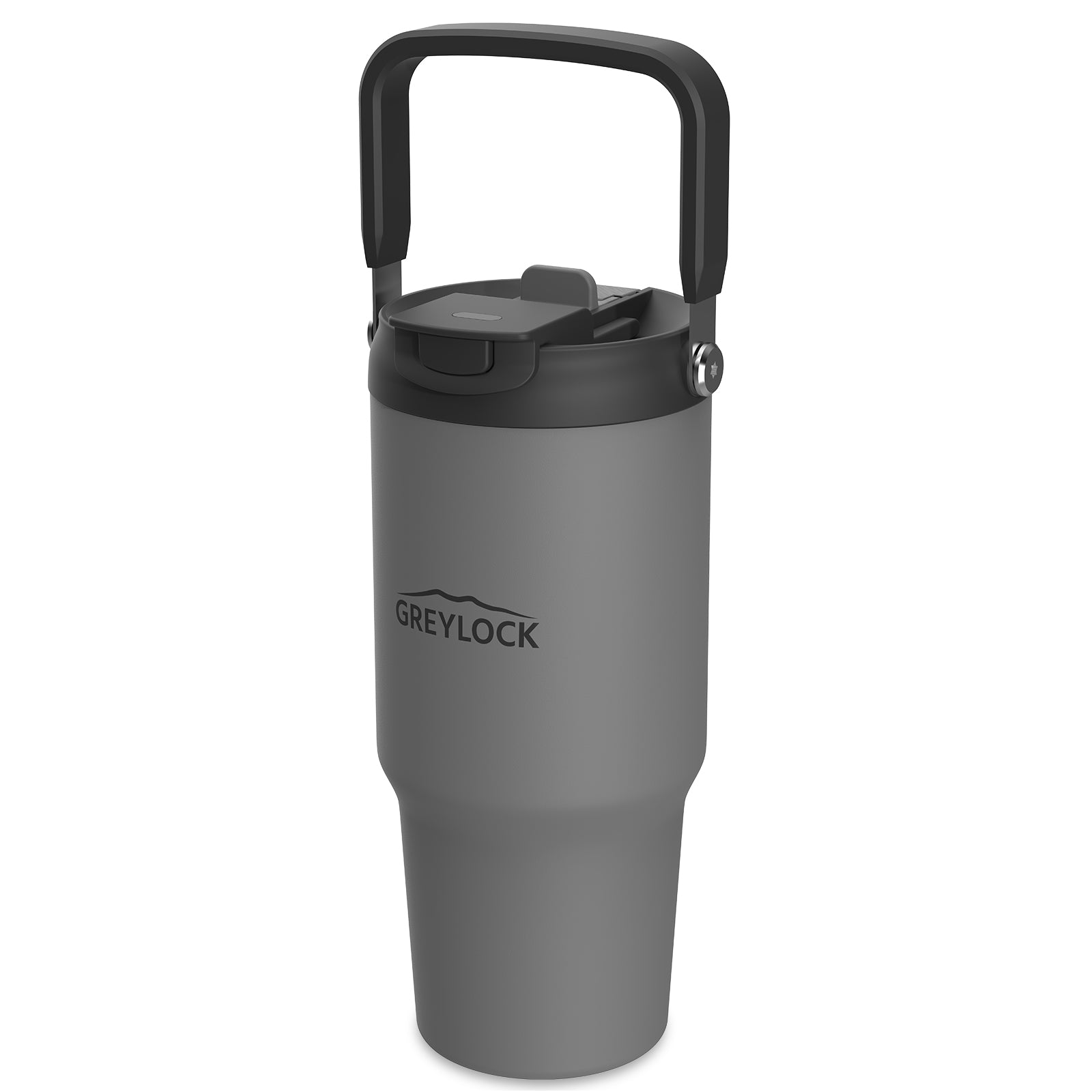
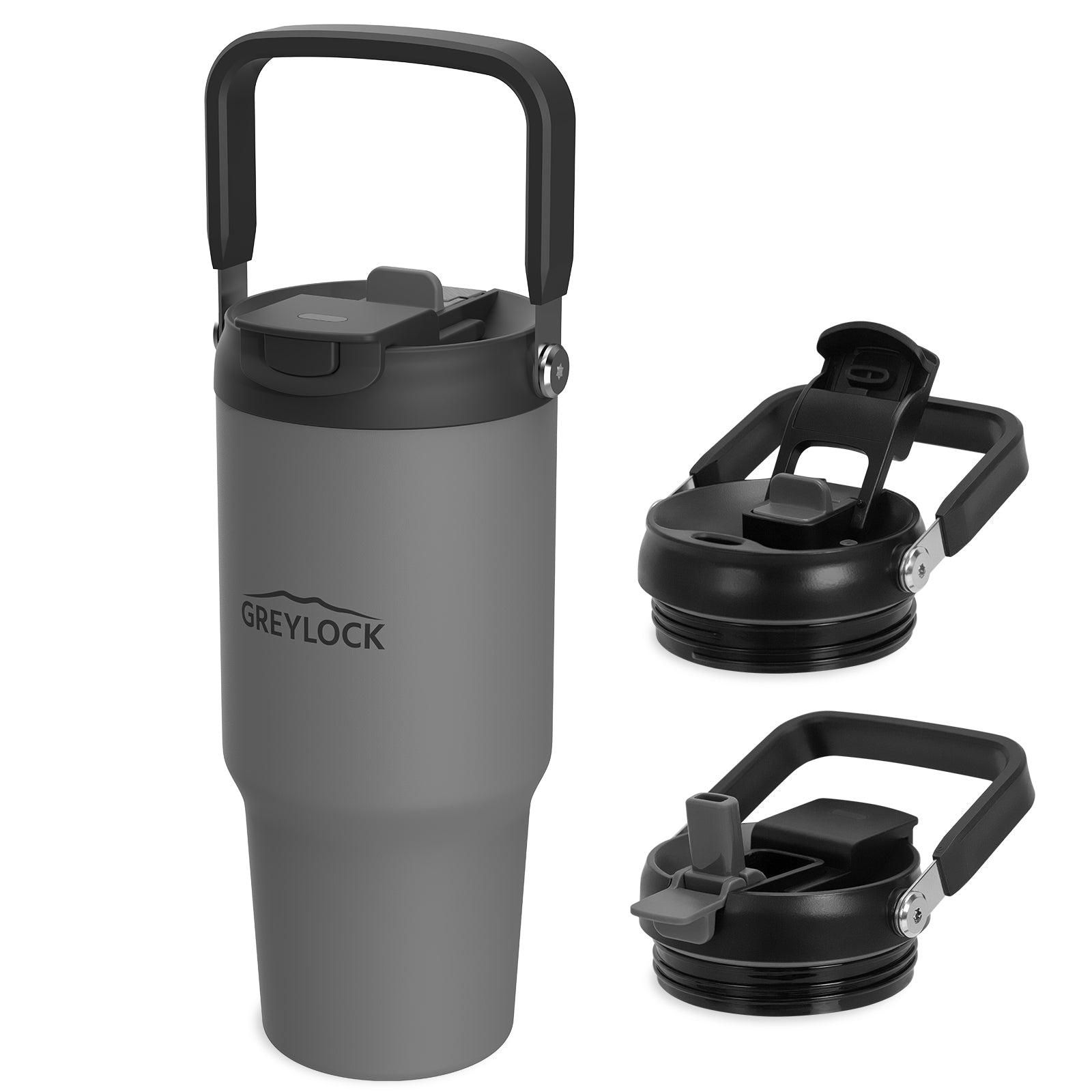
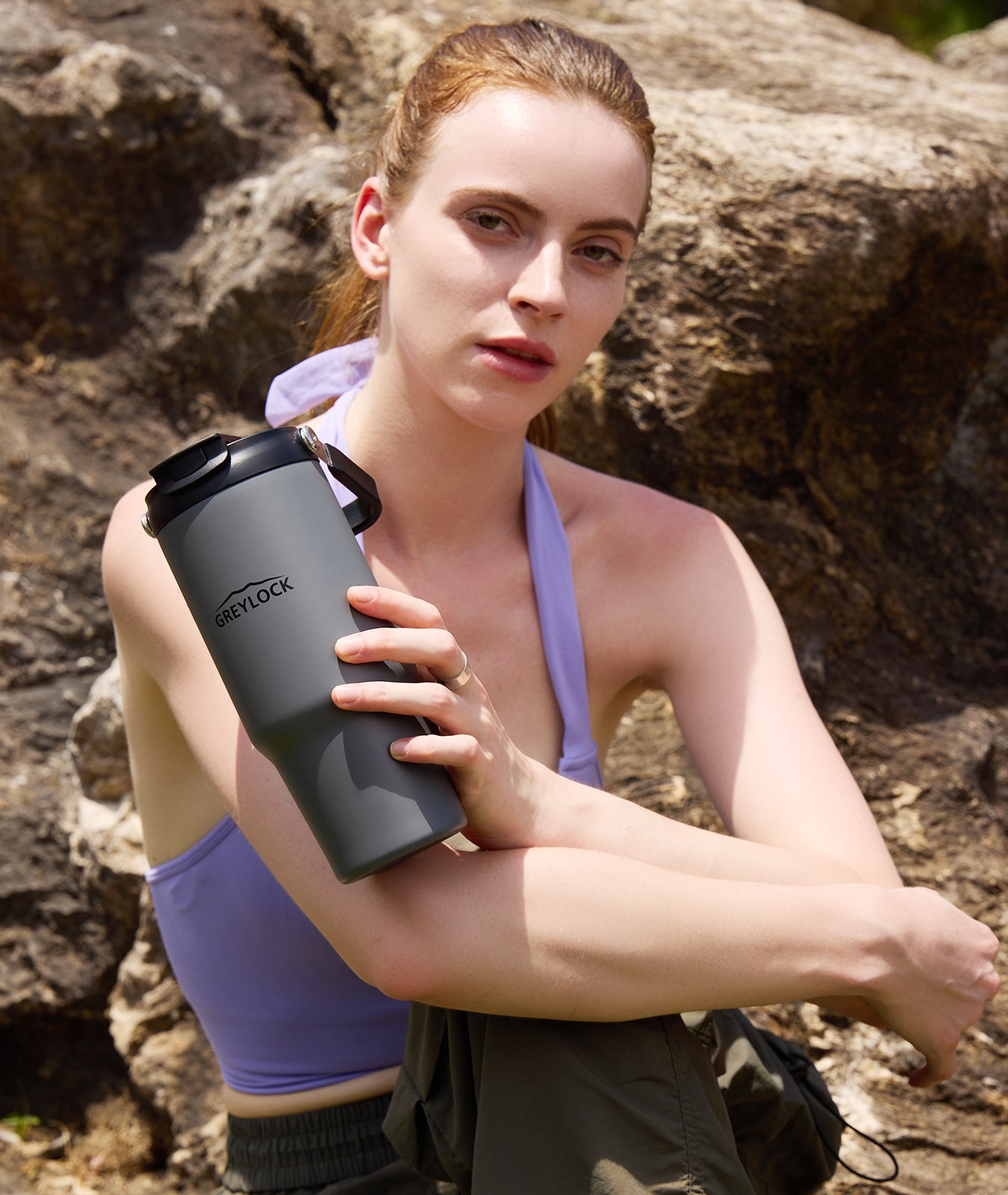
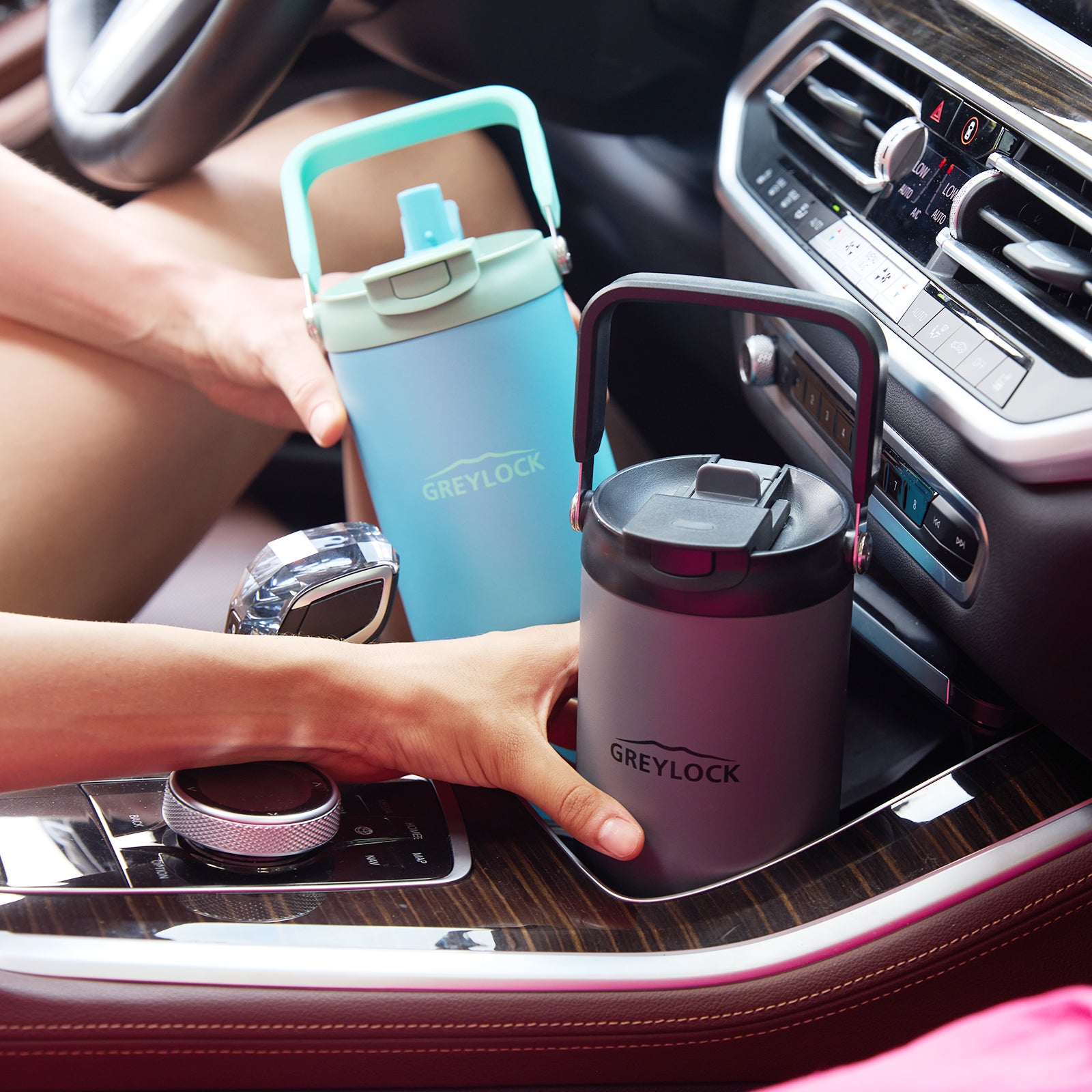
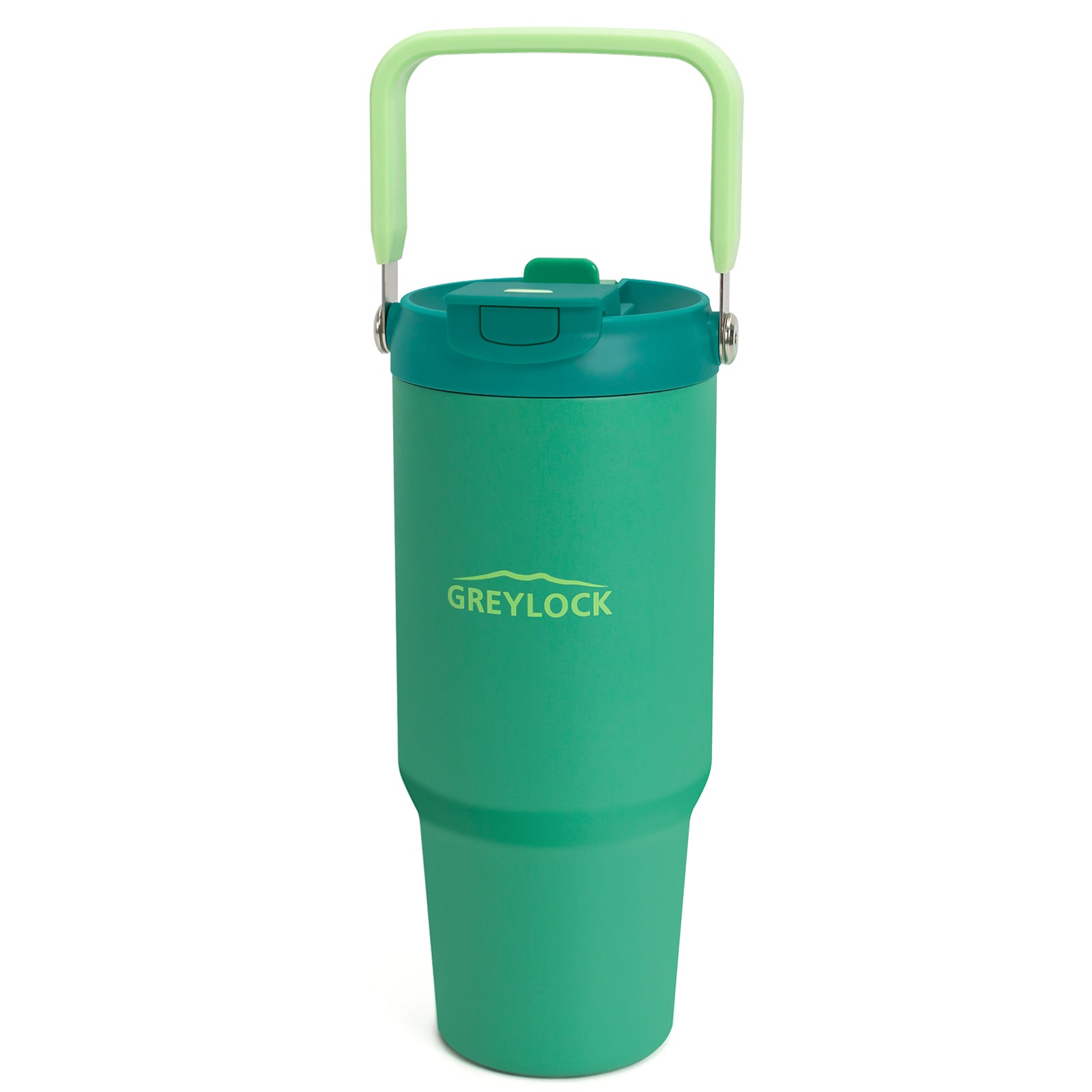
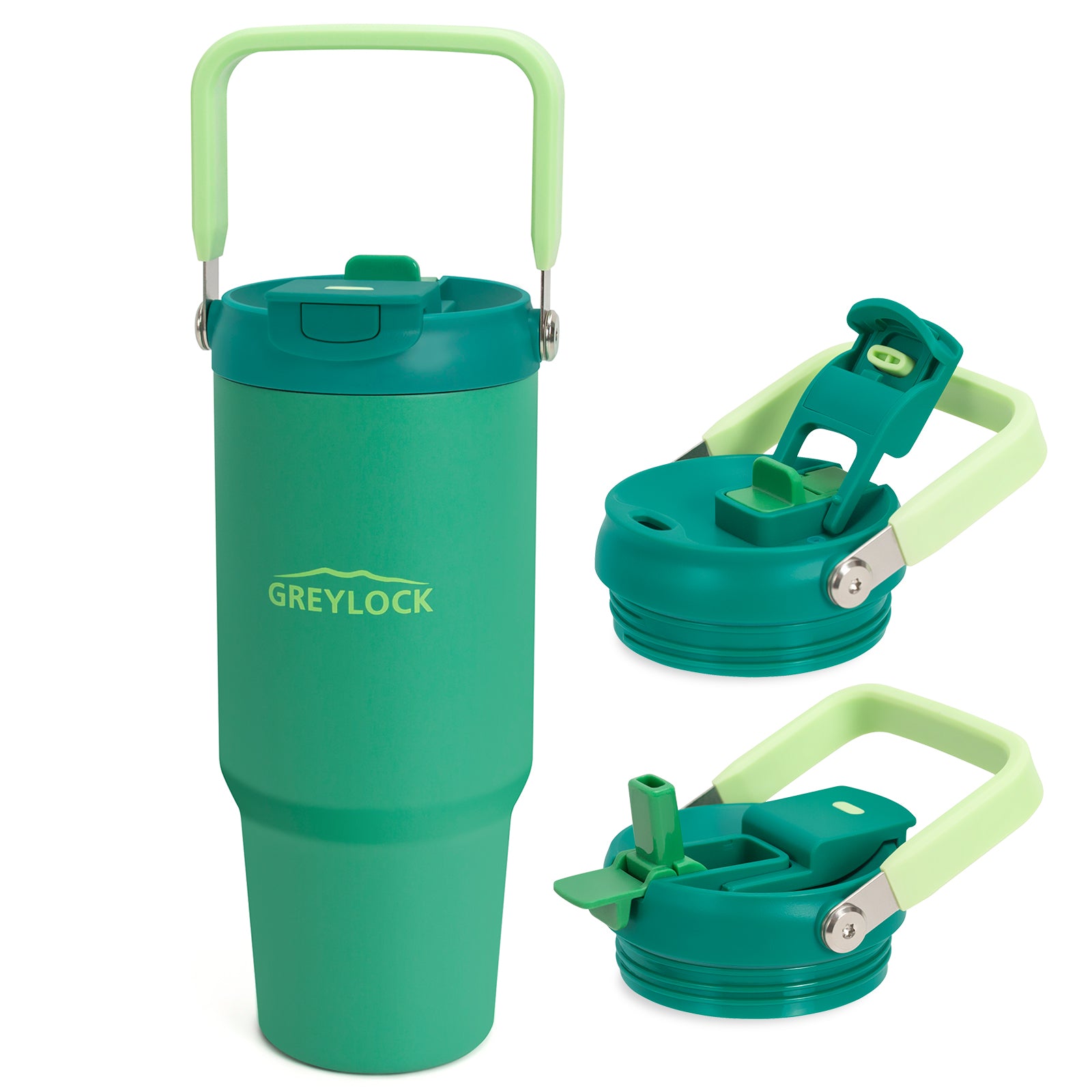

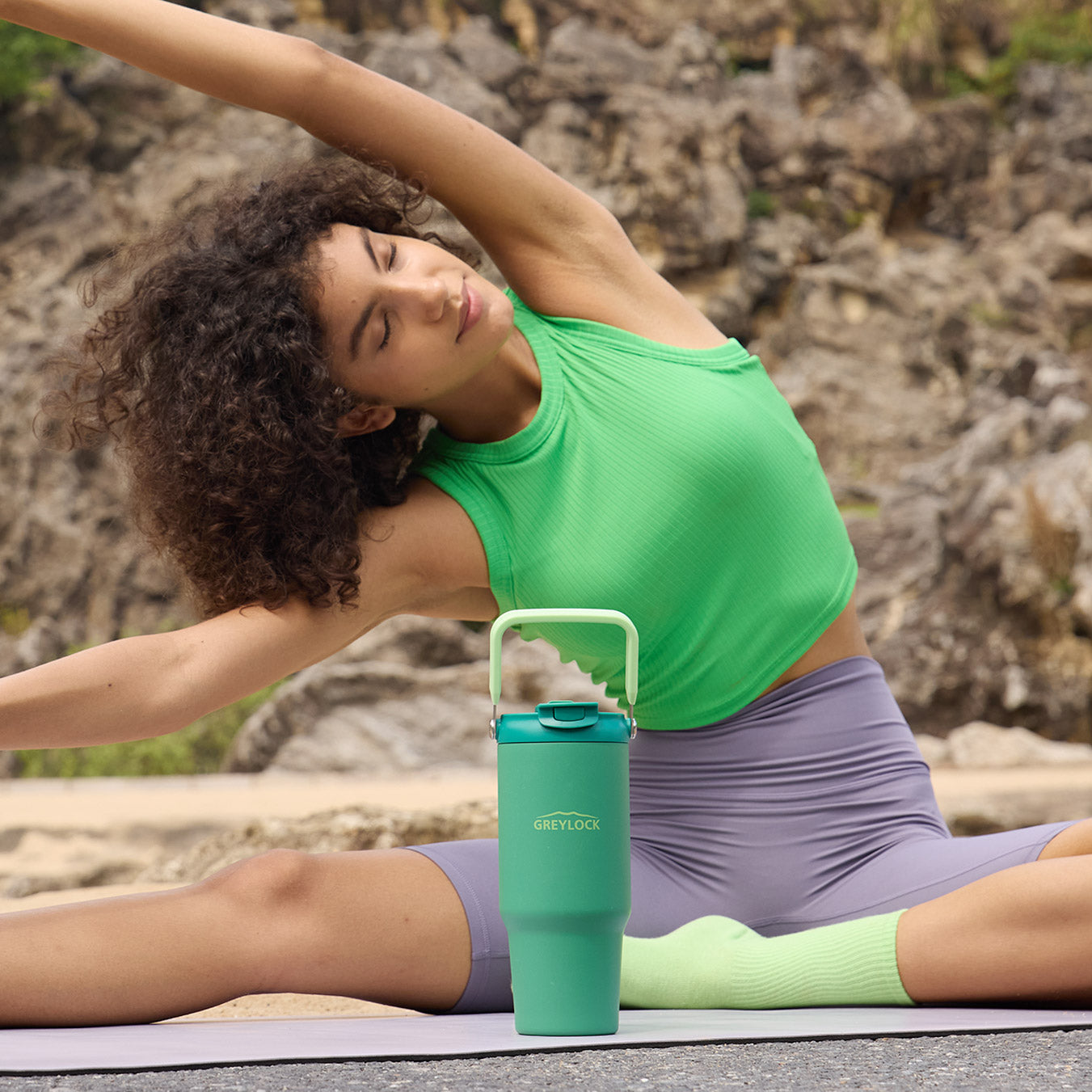
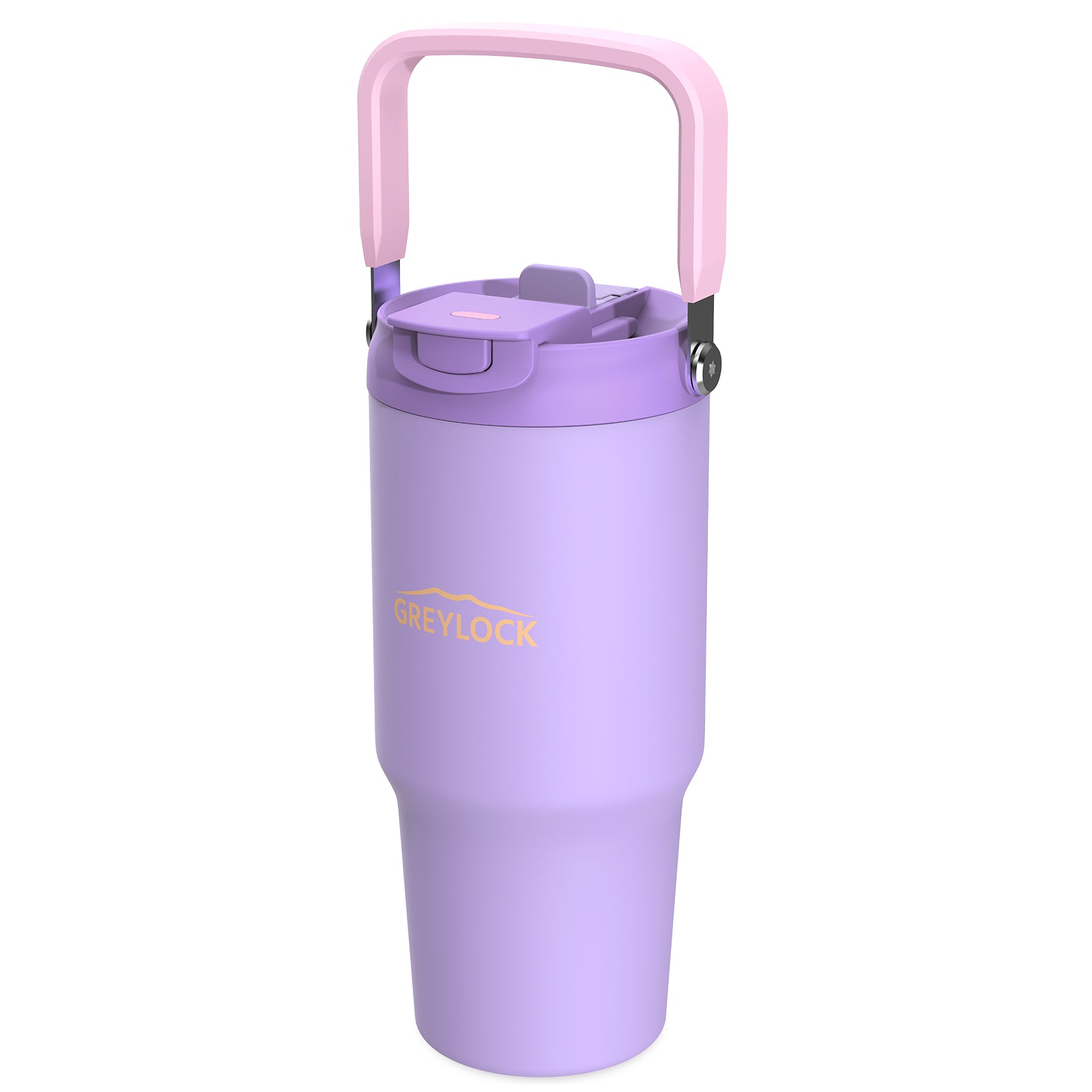
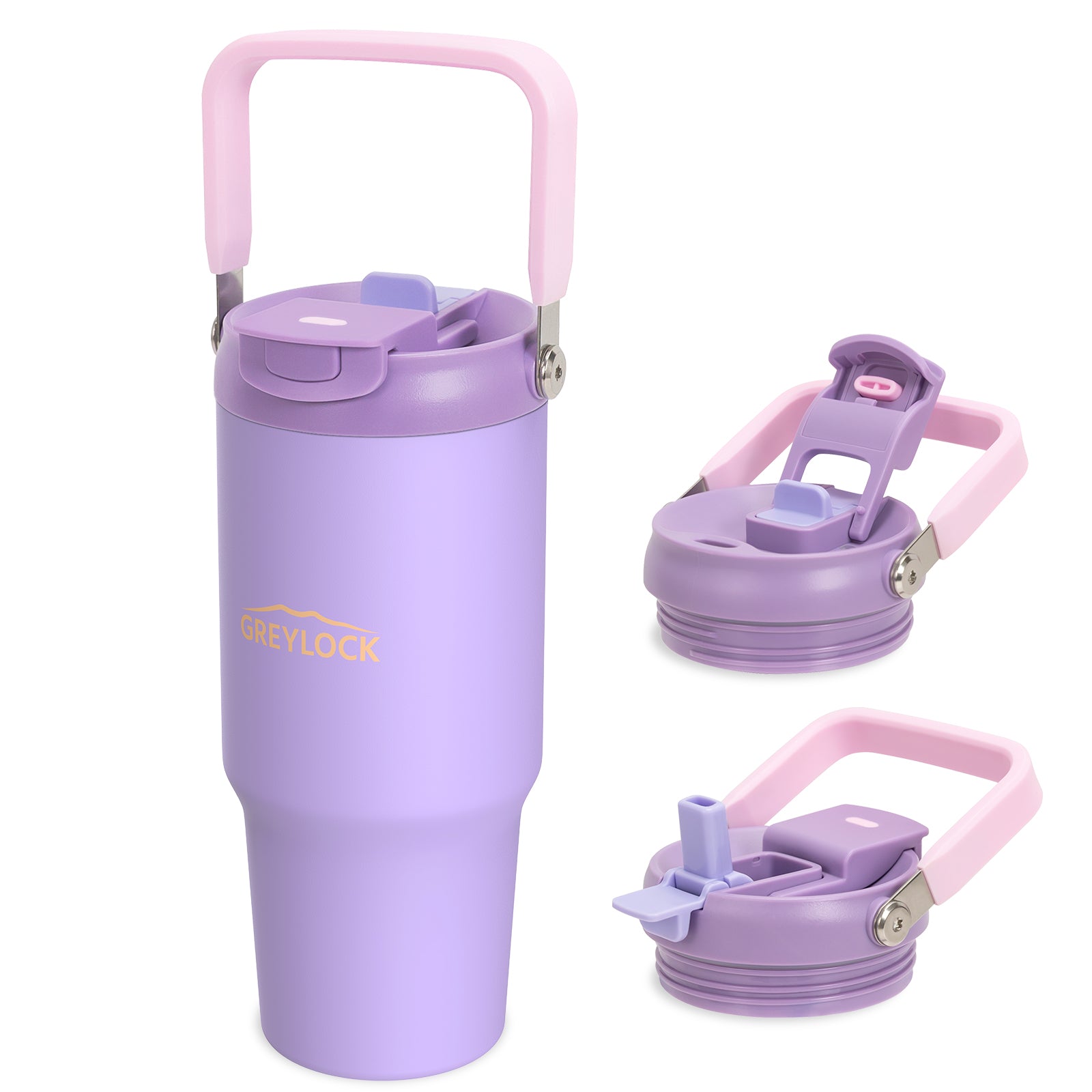


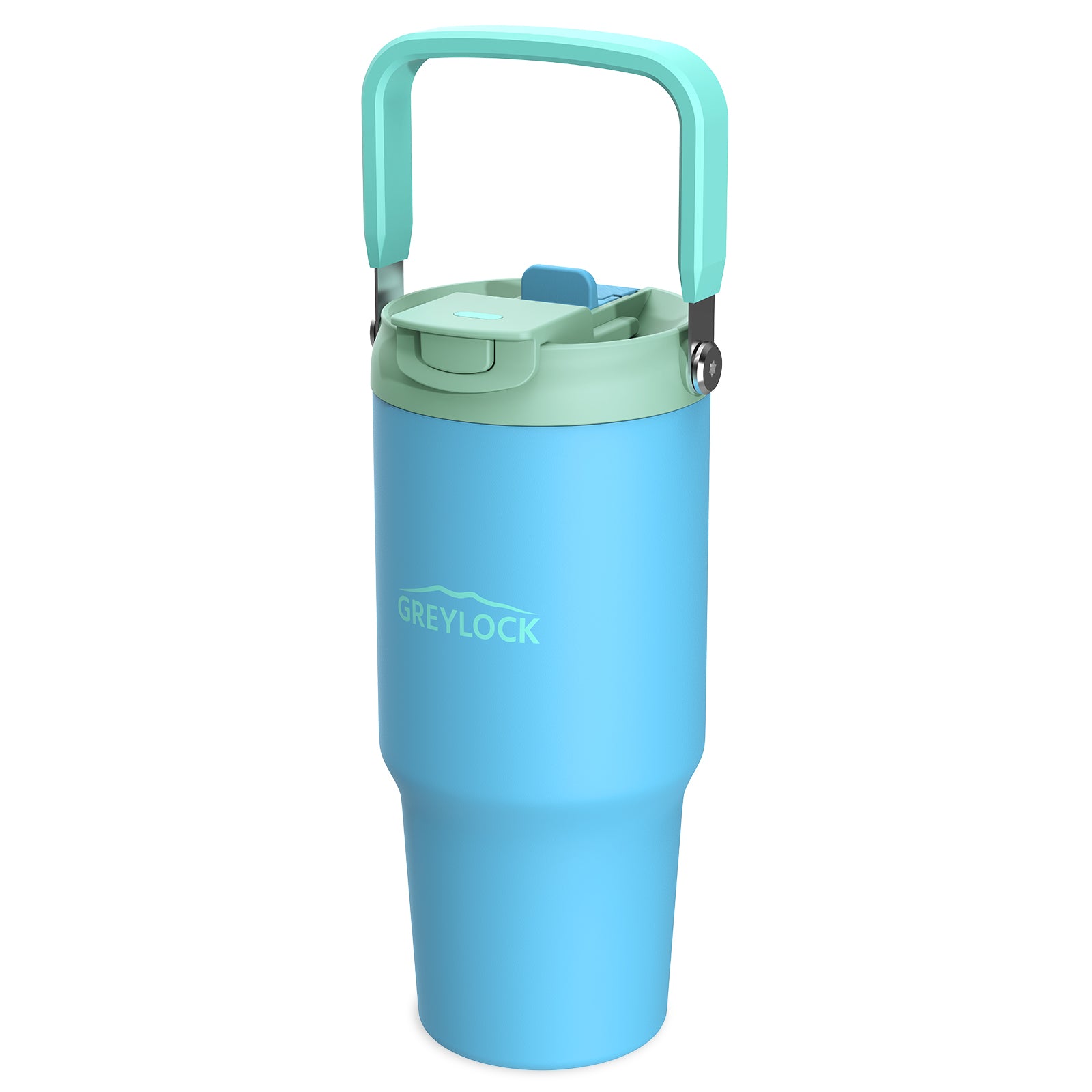
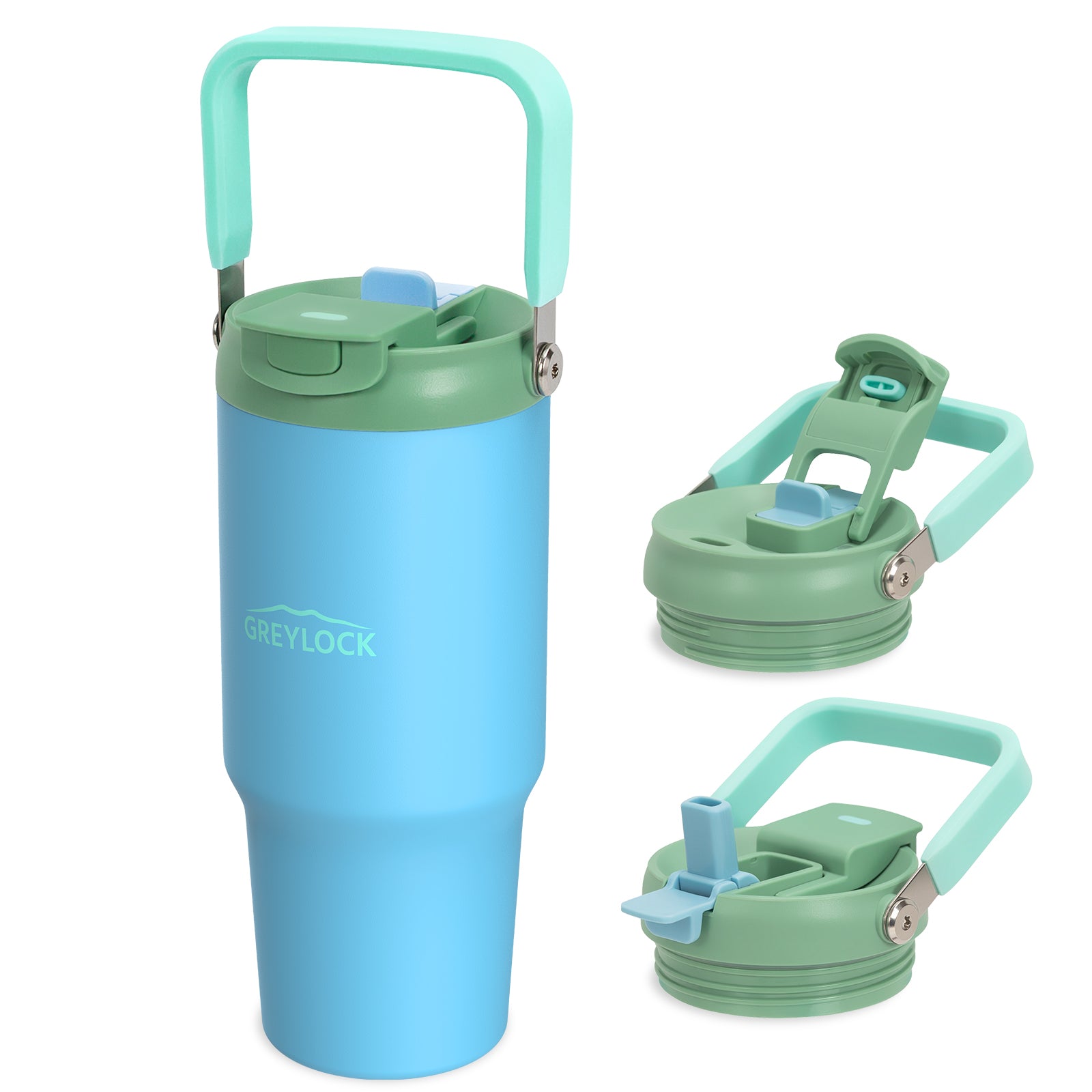


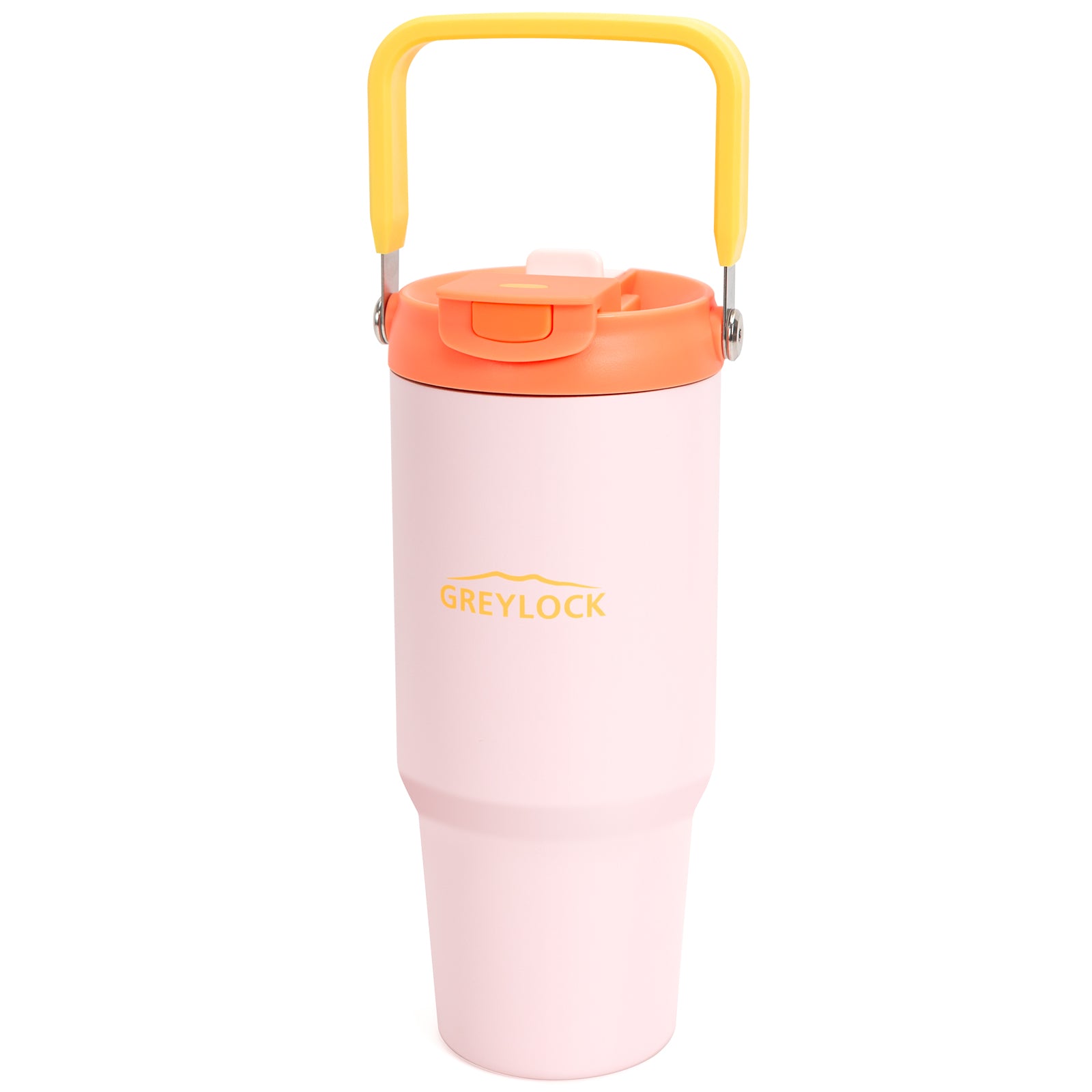
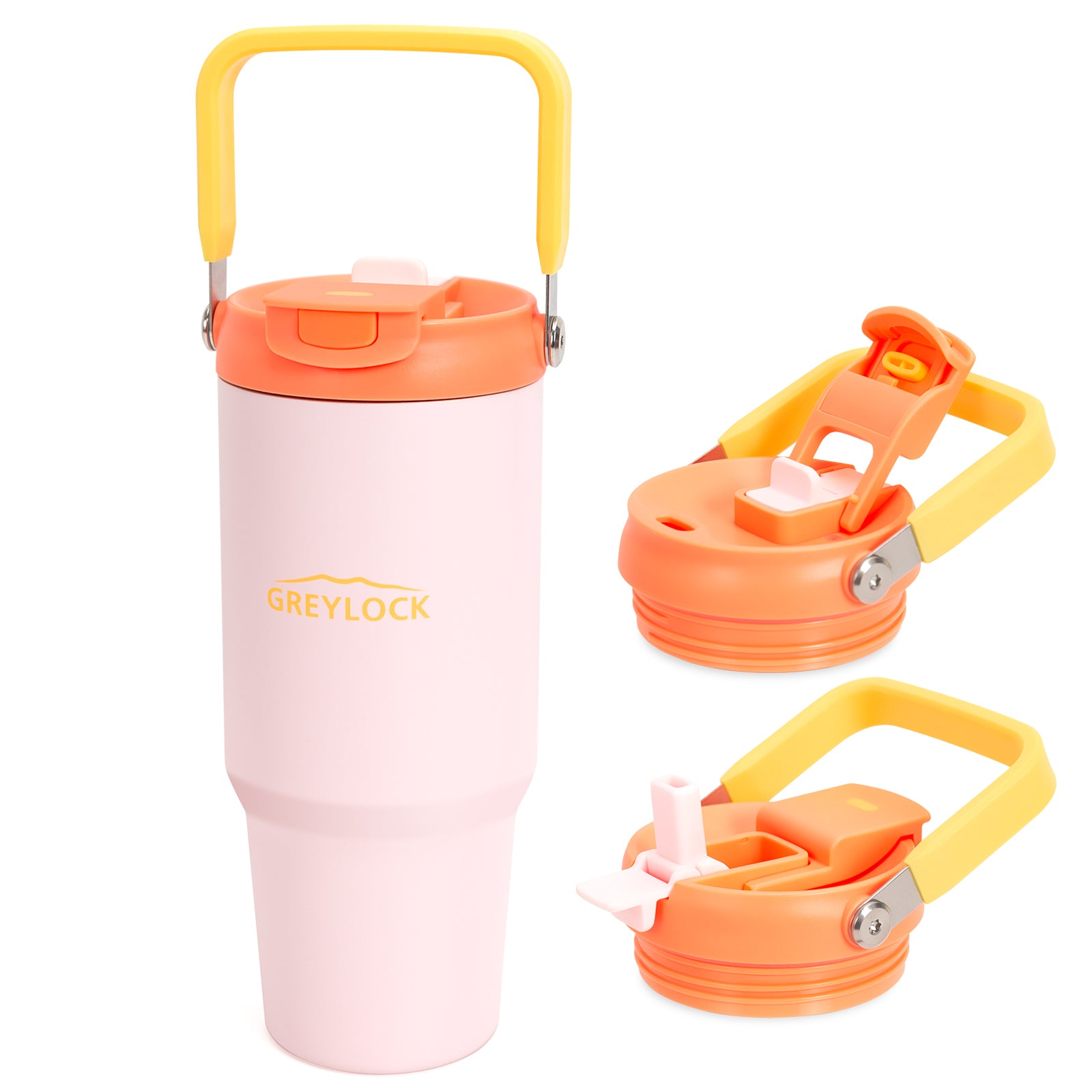
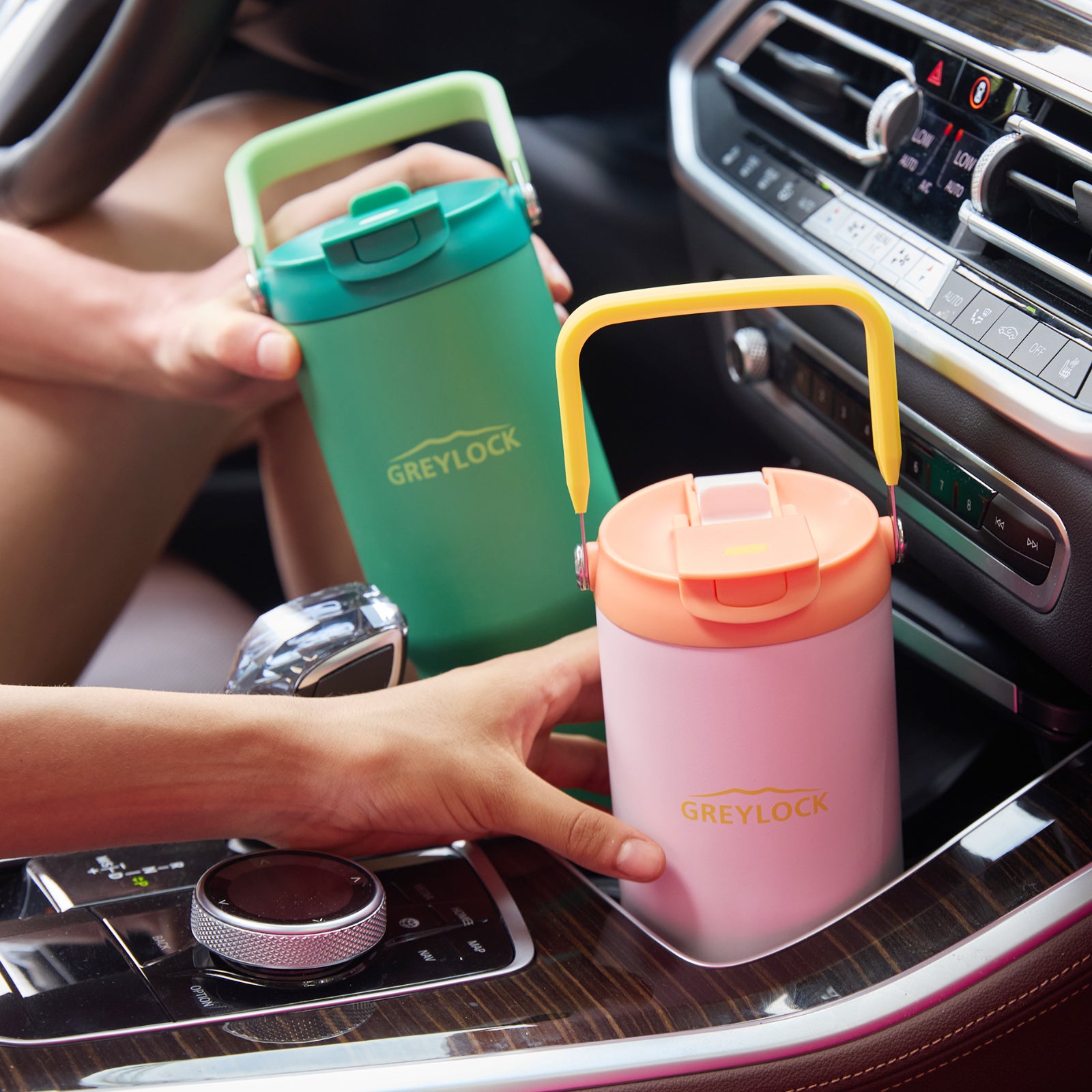

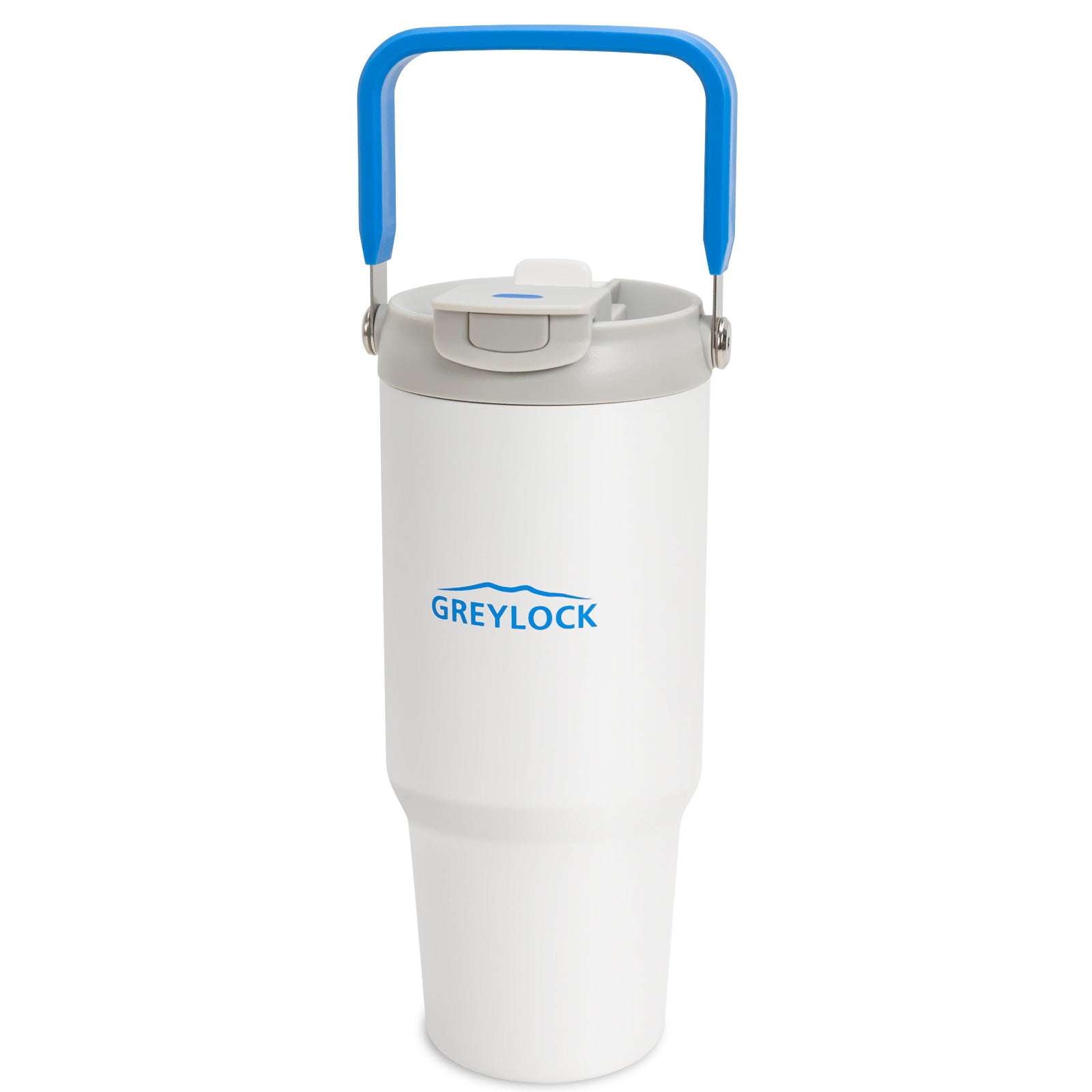
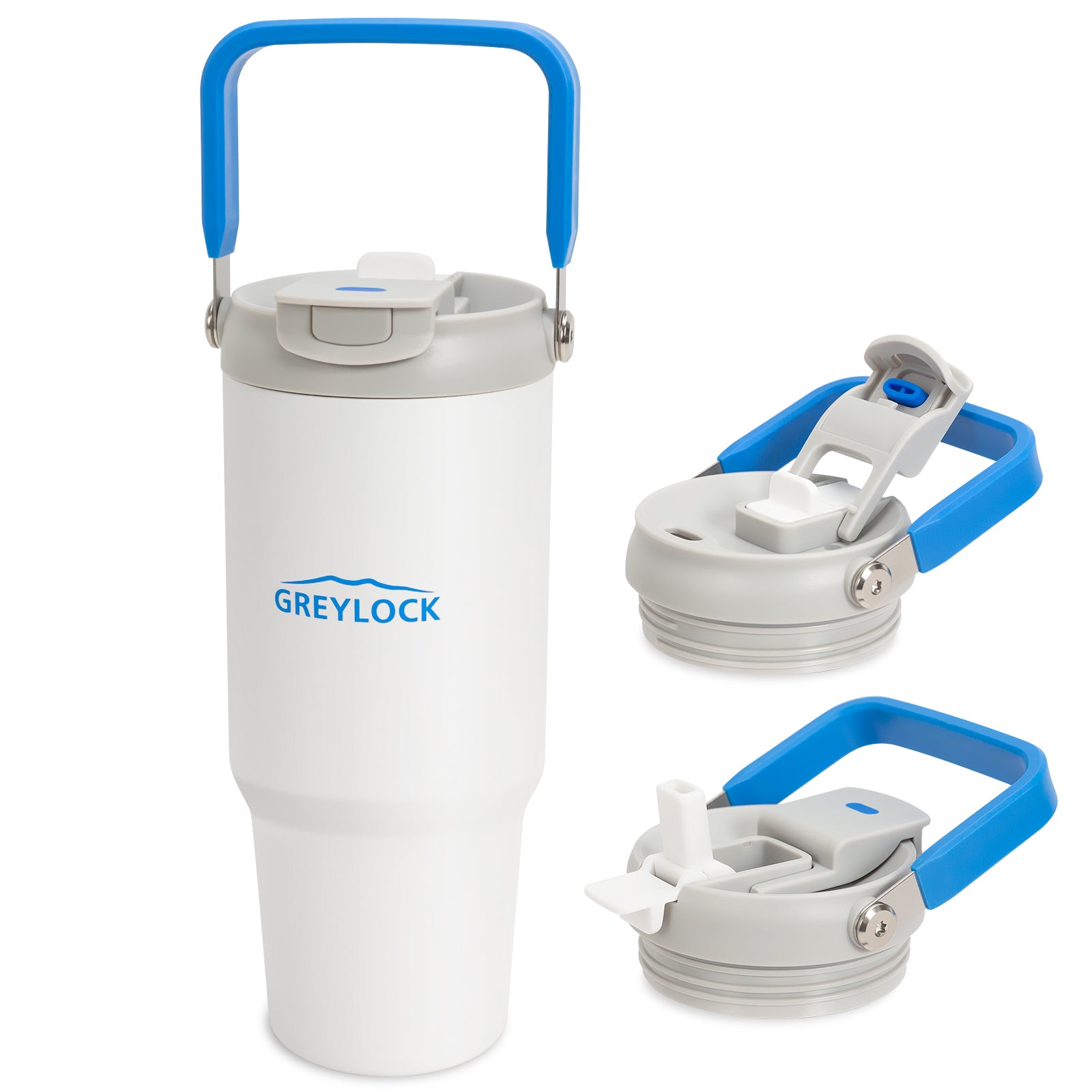
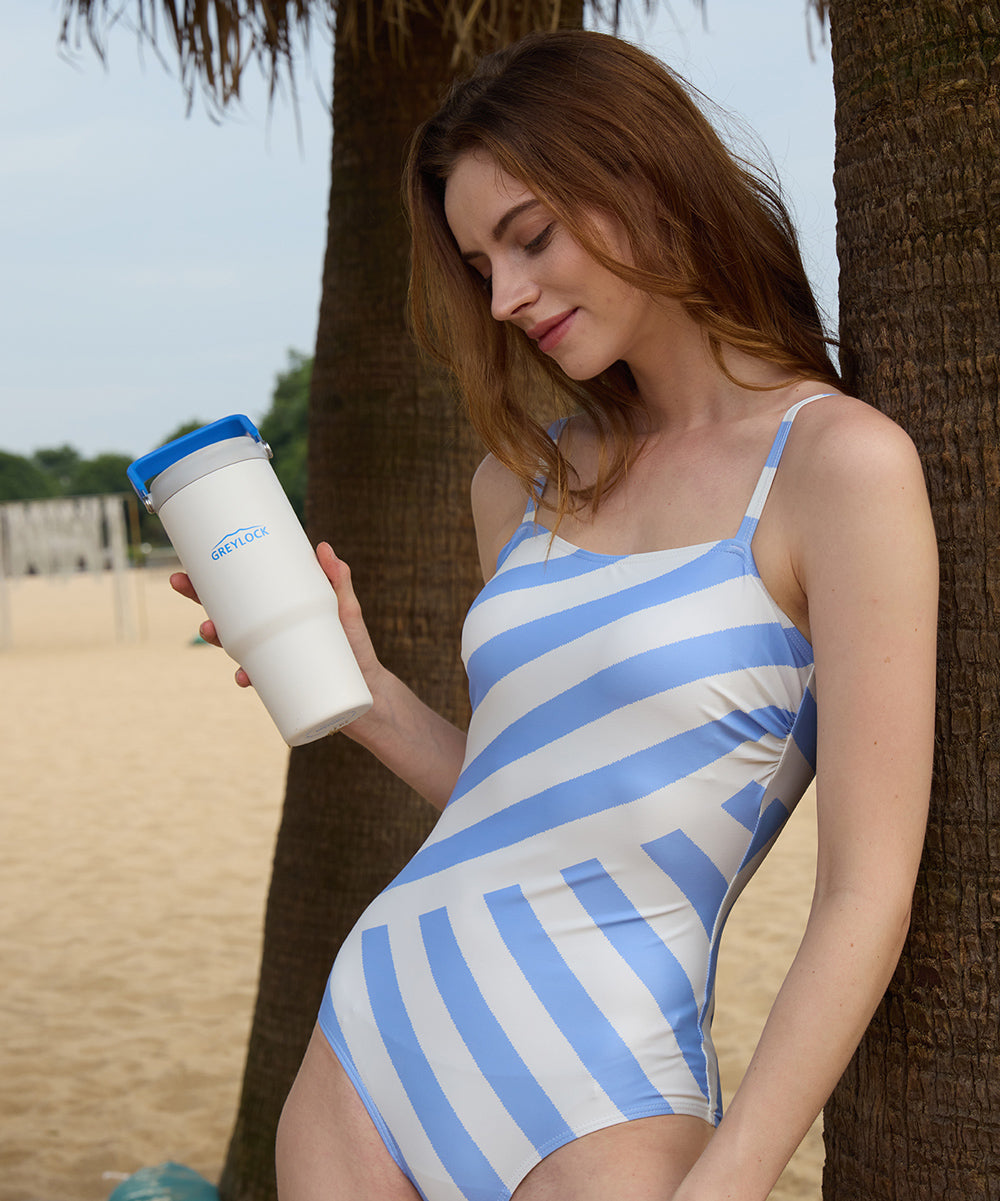
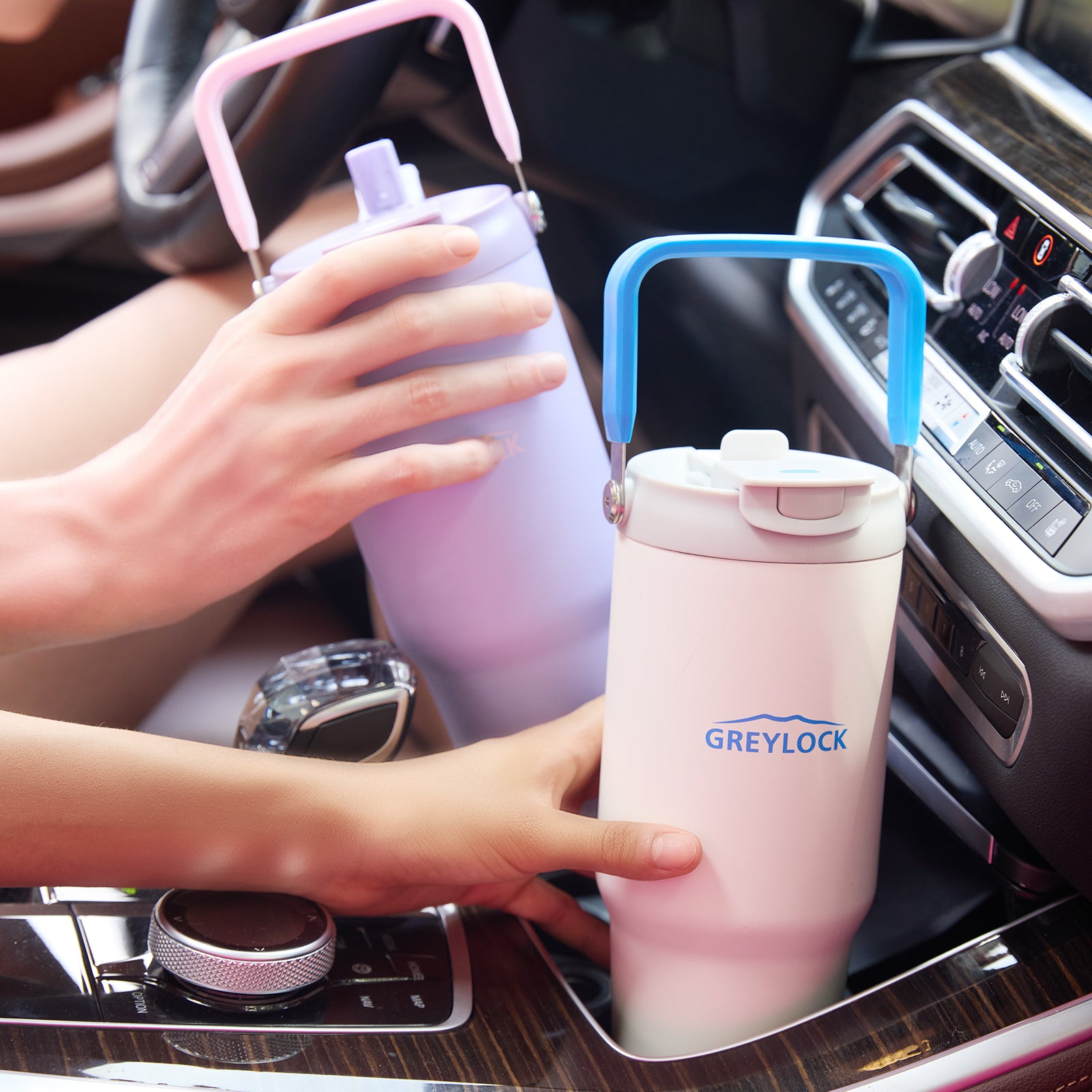



Share:
From Gym to Office: Why Greylock Bottles Are Perfect for Any Setting?
How Many Ounces in a Gallon? Your Ultimate Handbook to Bottle Sizes